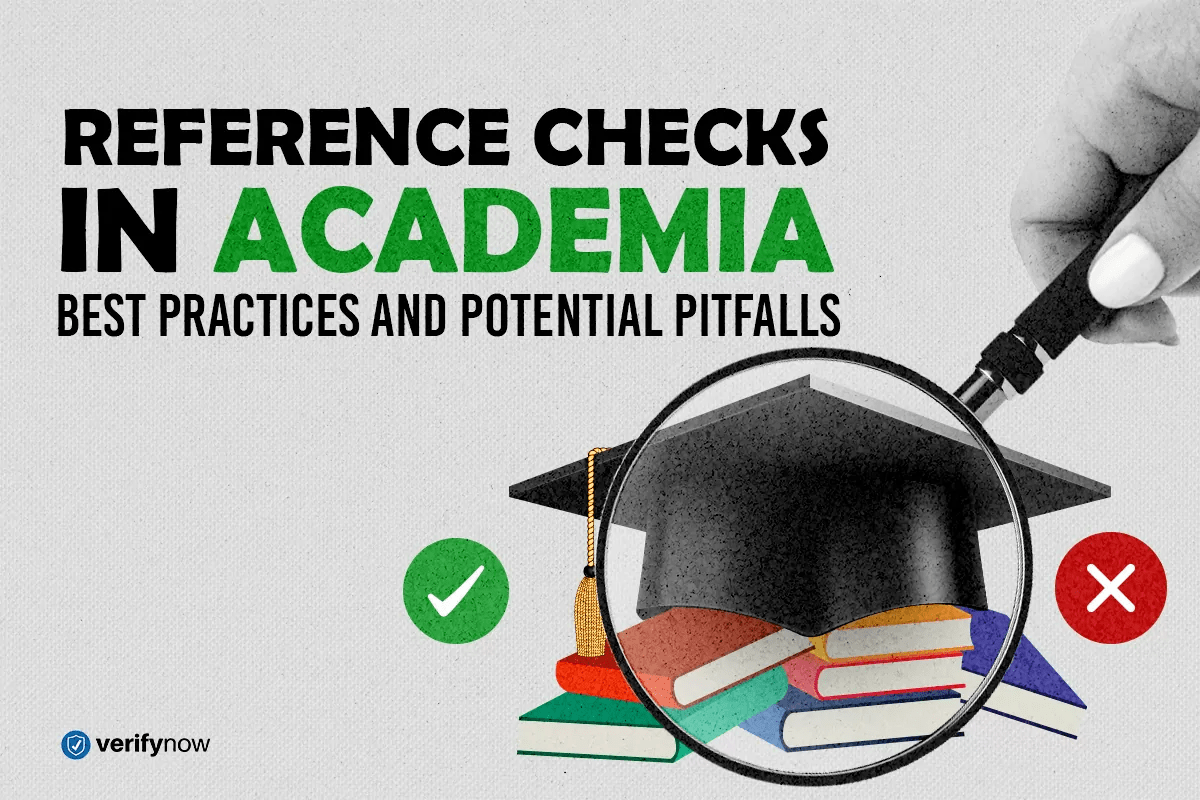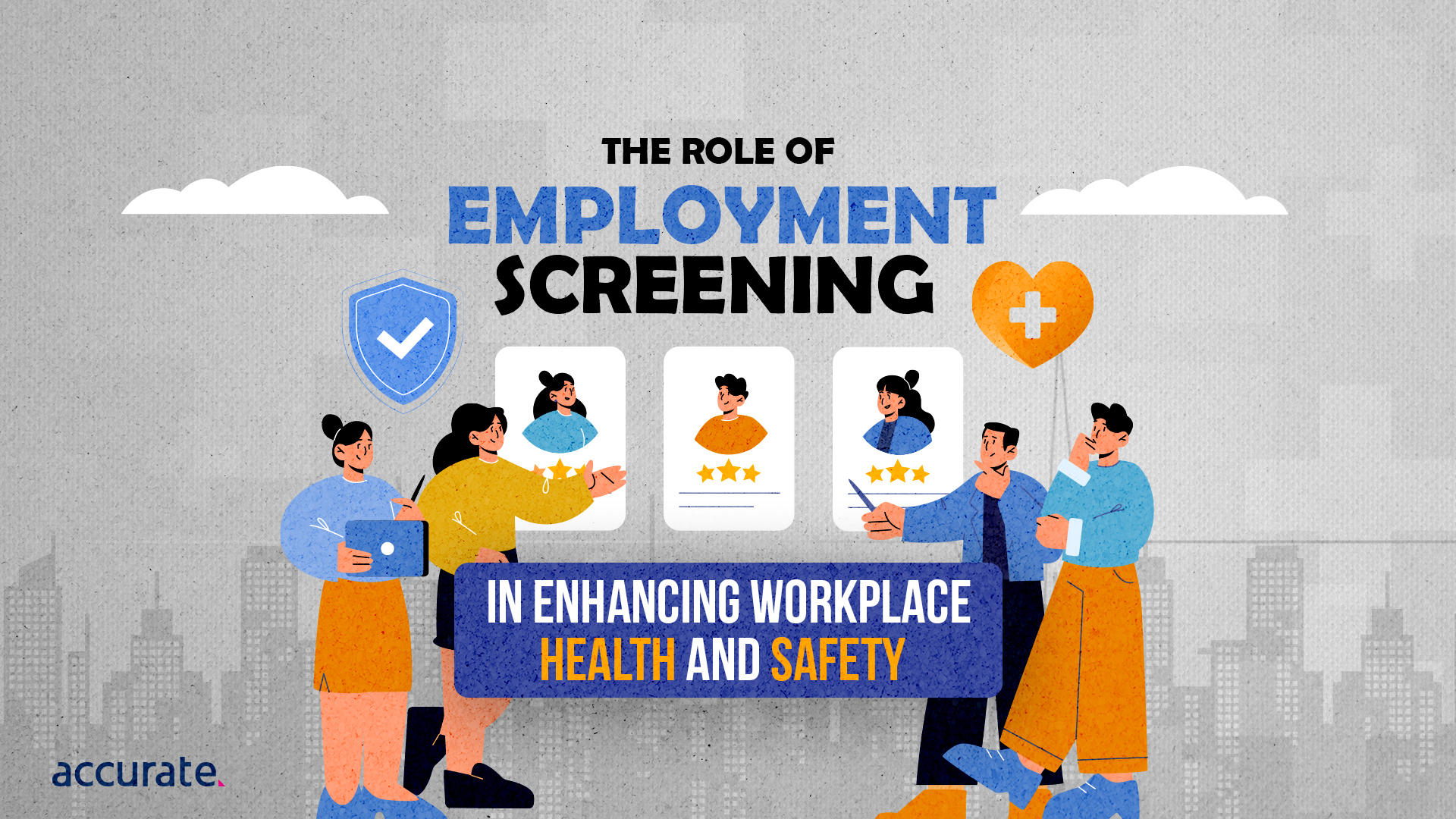The importance of reference checks in academia cannot be overstated. They serve as a critical tool in the recruitment process, helping to verify an applicant’s claimed academic qualifications and achievements.
They also provide an invaluable insight into an applicant’s teaching abilities, collaborative dynamics, and fit within the academic community.
While reference checks bear similarities across different sectors, the unique environment of academia presents its own set of challenges. This guide will navigate you through these challenges while highlighting the best practices for conducting effective reference checks in an academic setting.
The Purpose of Reference Checks in Academia
Reference checks in academia serve several purposes:
Verifying Academic Qualifications and Contributions
When academic institutions embark on the journey of hiring, they are not merely filling positions but are investing in the future of education and research.
So, academic institutions use reference checks as a tool to confirm a candidate’s stated qualifications, achievements, and research contributions. It’s a practical step to ensure that the candidate truly has the academic background and accomplishments they claim.
Assessing Teaching Abilities
Teaching is a core component of academia. Reference checks help institutions gauge a candidate’s effectiveness in the classroom. They provide insights into classroom management, pedagogical methods, and the candidate’s capacity to create a positive learning atmosphere.
Understanding Collaboration Dynamics
Teamwork is also essential in academic settings, especially in research. So, conducting a thorough reference check offers a glimpse into how a candidate collaborates with peers, their role within research teams, and their contributions to academic departments.
Evaluating Interpersonal Skills
Coupled with understanding how to collaborate with the faculty team, interpersonal skills are necessary for integrating into the academic community. Reference checks help institutions assess a candidate’s communication skills, their approach to resolving conflicts, and their general interactions with peers and students.
Laying the Groundwork: Before the Reference Check
Reference checks, while invaluable, require careful preparation to ensure their effectiveness and appropriateness. Here’s a closer look at the essential steps to consider before diving into the process:
Step 1: Obtain Consent
Before reaching out to any references, you must first secure the candidate’s permission. Not only is this a matter of courtesy, but it’s also a legal requirement in many jurisdictions due to data protection laws.
Institutions that obtain explicit consent demonstrate respect for the candidate’s privacy and are in compliance with the law.
Step 2: Prioritise Quality in the Number of References
The adage “quality over quantity” holds true when deciding on the number of references to contact. Instead of seeking feedback from a vast array of individuals, it’s often more insightful to connect with a select few who have had meaningful interactions with the candidate.
These individuals are more likely to offer in-depth and relevant feedback, painting a clearer picture of the candidate’s capabilities and fit.
Step 3: Choose a Diverse Set of Referees
The academic journey of a candidate is influenced by interactions with a variety of individuals, from peers and collaborators to superiors and students. To gain a holistic understanding, it’s beneficial to select a diverse group of referees.
Academic peers can offer insights into the candidate’s scholarly contributions, research collaborators can shed light on teamwork dynamics, department heads can provide a broader institutional perspective, and feedback from students can illuminate the candidate’s teaching prowess and rapport.
Together, these varied perspectives create a comprehensive profile of the candidate.
Crafting the Right Questions
The quality of questions can greatly influence the depth and relevance of information obtained during a reference check. Consider asking a variety of questions:
| Question | Detail | Example |
| Standardised Questions | These offer a consistent framework, ensuring that all candidates are evaluated against the same criteria. They’re useful for gathering uniform data across multiple candidates. | “On a scale of 1 to 10, how would you rate the candidate’s ability to meet research deadlines?” |
| Open-Ended Questions | These allow referees to provide more nuanced and detailed feedback. They can reveal insights about a candidate’s experiences, challenges faced, and unique contributions that might not emerge from standardised questions. | “Can you describe a situation where the candidate demonstrated exceptional problem-solving skills?” |
| Probing Research Integrity | It’s vital to understand a candidate’s commitment to ethical research practices. Questions in this category can uncover their approach to data handling, publication ethics, and adherence to institutional research guidelines. | “Have you ever observed the candidate facing an ethical dilemma in research? How did they handle it?” |
| Assessing Soft Skills | Beyond academic prowess, a candidate’s interpersonal skills play a crucial role in their integration into an academic community. Questions should explore their communication style, teamwork dynamics, and adaptability. | “How does the candidate handle disagreements or conflicts within the team, especially in collaborative projects?” |
Best Practices for Conducting Reference Checks
While the content of a reference check is undeniably important, the manner in which it’s conducted can greatly influence its effectiveness.
Respect, Professionalism, and Confidentiality
- Respect: Always approach referees with courtesy. Remember, they are taking time out of their schedules to provide feedback. Acknowledge their effort and ensure they feel valued and respected throughout the conversation.
- Professionalism: Maintain a structured and organised approach. Be punctual for scheduled calls, introduce yourself and your institution, and explain the purpose of the reference check clearly.
- Confidentiality: Assure referees that their feedback will be kept confidential and will solely be used for the hiring process. This can encourage more candid and honest responses.
The Art of Listening
Active listening is a cornerstone of effective reference checks. It involves:
- Absorbing Information: Pay close attention to what the referee is saying without interrupting.
- Seeking Clarification: If something is unclear, don’t hesitate to ask follow-up questions. This ensures you fully grasp the referee’s perspective.
- Reading Between the Lines: Sometimes, what’s left unsaid can be as telling as explicit comments. Be attuned to the referee’s tone, hesitations, and nuances in their responses.
Leveraging Digital Tools
In today’s digital age, technology can significantly enhance the reference checking process:
- Efficiency: Digital platforms can automate certain aspects of the process, such as scheduling calls or sending out standardised questionnaires.
- Depth: Some tools allow for recording responses, ensuring that no detail is missed. This can be particularly useful when reviewing feedback later.
- Consistency: Digital tools can ensure that the same set of questions is posed to every referee, ensuring uniformity in the data collected.
Navigating Potential Pitfalls
One of the primary challenges is the use of leading questions. These are questions that subtly prompt the referee to answer in a specific way, potentially skewing their response. For example, asking, “Wouldn’t you say the candidate excels in teamwork?” already suggests a positive answer. Instead, it’s more objective to ask, “How would you describe the candidate’s teamwork skills?”
Another subtle yet pervasive challenge is unconscious bias. Everyone, regardless of their intentions, can harbour biases that they’re unaware of. These biases can colour one’s interpretation of feedback, leading to potentially skewed hiring decisions.
For example, if a referee mentions that a candidate is “assertive,” one might view this positively for male candidates but negatively for female candidates due to deep-seated biases. It’s crucial to recognise and counteract these biases to ensure fairness in the hiring process.
Cultural nuances present another layer of complexity, especially when seeking references from international institutions. Different cultures have varied ways of offering feedback. In some cultures, direct criticism might be avoided in favour of more subtle hints, while in others, feedback might be more forthright.
Misinterpreting these nuances can lead to a skewed understanding of the candidate’s abilities and fit.
Lastly, the legal landscape surrounding employment and reference checks can’t be ignored. Different jurisdictions have specific regulations about what can and cannot be asked during a reference check, how the information can be used, and the rights of the candidate in the process. Overstepping these legal boundaries, even unintentionally, can lead to significant repercussions for the institution.
Interpreting and Acting on Reference Check Insights
Evaluating a candidate doesn’t end with collecting feedback from references; it extends to the careful interpretation and judicious use of this feedback. While reference checks, on their own, provide a wealth of information, when combined with insights from interviews and application materials, they can paint a far more comprehensive picture of a candidate’s suitability for a position.
One of the critical aspects of interpreting reference check feedback is to view it in conjunction with other pieces of the evaluation puzzle.
For example, a referee might highlight a candidate’s exceptional teamwork skills, which could be corroborated by the candidate’s responses during the interview or their involvement in collaborative projects as listed on their CV.
The multi-faceted evaluation helps in creating a more accurate and holistic understanding of the candidate’s capabilities and fit within the academic community.
However, not all feedback will be positive, and red flags may emerge during the reference check process. These could range from concerns about the candidate’s adherence to research ethics to interpersonal challenges or inconsistencies in their academic achievements.
Addressing these red flags is crucial, and it requires a balanced approach. It might involve seeking additional references, discussing the concerns with the candidate, or even re-evaluating the candidate’s fit for the position.
Lastly, the process of interpreting and acting on reference-check insights should not be a siloed activity. It’s beneficial to foster a collaborative decision-making environment between the Human Resources department and the academic departments involved in the hiring process.
Through collaboration, you can ensure that different perspectives are considered and a more informed hiring decision is made. For example, while HR might focus on the candidate’s interpersonal skills and fit within the institution, the academic department might have a keen eye on the candidate’s research contributions and teaching abilities.
The Evolving Landscape: Future Trends in Academic Reference Checks
The academic world is undergoing a digital transformation, and this evolution is significantly impacting the way reference checks are conducted. Digital portfolios, for example, offer a dynamic platform for academics to showcase their work, research, and achievements in real-time, providing a richer context than traditional CVs.
With this shift, institutions can gain a more in-depth understanding of a candidate’s contributions and capabilities.
Aside from this, the prominence of peer reviews and public academic discourse, especially on platforms like academic journals and forums, provides a transparent view of a candidate’s engagement with their field. These kinds of interactions can reveal not just the quality of their work but also their ability to communicate, collaborate, and handle critiques.
In light of these evolving trends, it’s imperative for academic institutions to continuously update and refine their reference check practices.
However, with increased digitisation comes the challenge of data privacy. As more information becomes available online, institutions must be vigilant about respecting privacy boundaries and adhering to data protection regulations.
Key Takeaways
Even as the academic environment evolves, the importance of thorough reference checks remains undiminished. As institutions strive to maintain the highest standards of quality, adopting best practices for reference checks is more crucial than ever.
Contact VerifyNow today to learn more about how we can assist you in conducting thorough, thoughtful, and effective reference checks in academia.



